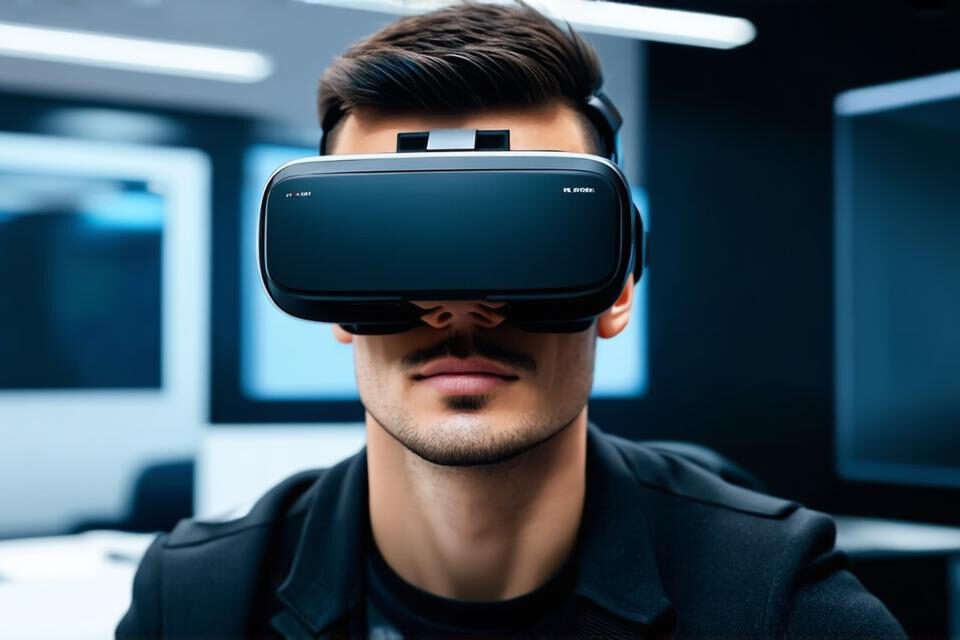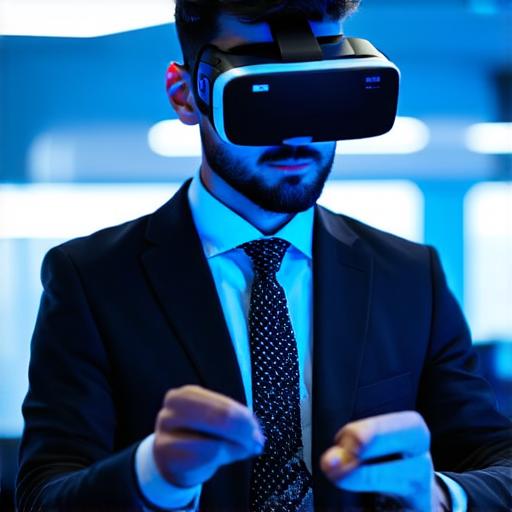Enhance Skills with Virtual Reality Professional Development

Virtual reality (VR) technology is revolutionizing the way we learn and train people in various fields. VR allows individuals to experience immersive environments that simulate real-world scenarios, providing a safe and efficient way for them to acquire new skills and knowledge.
In this article, we will explore how virtual reality professional development can enhance skills and improve performance in different industries.
Virtual Reality Professional Development: What is it?
Virtual reality professional development involves using VR technology to create realistic simulations of real-world environments and situations. These simulations provide learners with a safe and controlled environment to practice their skills and knowledge. With virtual reality, individuals can experience hands-on training that would be difficult or impossible to replicate in real life.
Virtual Reality Professional Development: Benefits
-
Cost-effective: Virtual reality technology eliminates the need for costly equipment, travel, and other resources that are required for traditional training methods.
-
Safe: Virtual reality simulations provide a safe environment for individuals to practice their skills without any risk of harm. This is particularly useful in industries such as healthcare and emergency services, where mistakes can be catastrophic.
-
Engaging: Virtual reality technology provides an immersive learning experience that engages learners and keeps them motivated. This leads to better retention of knowledge and skills and improved performance.
-
Customizable: Virtual reality simulations can be customized to meet the specific needs of different industries and organizations. This allows for tailored training that is relevant and useful to the learners.

Virtual Reality Professional Development in Action
There are several examples of how virtual reality professional development has been used in different industries to enhance skills and improve performance. Here are some case studies:
-
Healthcare: Virtual reality technology has been used in healthcare to train medical professionals in various procedures, including surgery, emergency services, and patient care. For example, the University of California, San Francisco (UCSF) Medical Center uses virtual reality simulations to train surgeons in complex surgical procedures. This allows for better preparation and reduces the risk of mistakes during surgeries.
-
Emergency Services: Virtual reality technology has been used to train emergency services personnel in various scenarios, including responding to natural disasters, accidents, and other emergencies. For example, the New York City Fire Department uses virtual reality simulations to train firefighters in rescue operations and other high-risk situations. This provides a safe environment for learners to practice their skills and improve their performance.
-
Military: Virtual reality technology has been used by the military to simulate combat scenarios and train soldiers in various skills, including weapons handling, tactics, and leadership. For example, the US Army uses virtual reality simulations to train soldiers in urban combat environments. This provides a realistic training experience that prepares soldiers for real-world situations.
-
Manufacturing: Virtual reality technology has been used in manufacturing to train workers in various production processes, including assembly, maintenance, and quality control. For example, GE Aviation uses virtual reality simulations to train maintenance technicians on aircraft engines and other complex systems. This allows for better knowledge transfer and reduces the risk of errors during maintenance procedures.
Research and Experiments
Several studies have shown that virtual reality professional development can be an effective way of enhancing skills and improving performance. For example, a study by the University of Maryland found that virtual reality training improved the accuracy and speed of medical professionals in performing surgical procedures. Another study by the University of British Columbia found that virtual reality training improved the decision-making skills of emergency services personnel in responding to medical emergencies.
Virtual Reality Professional Development: The Future
Virtual reality technology is constantly evolving, and we can expect to see more applications of virtual reality professional development in different industries in the future. As virtual reality technology becomes more affordable and accessible, it will become an increasingly popular way of training employees.
FAQs
1. What types of industries use virtual reality professional development?
Virtual reality professional development can be used in various industries such as healthcare, emergency services, manufacturing, and military.
2. How does virtual reality technology enhance skills and improve performance?
Virtual reality technology provides a safe and immersive learning environment that engages learners and improves their retention of knowledge and skills.
3. What are some examples of how virtual reality professional development has been used in different industries?
Virtual reality technology has been used in healthcare to train medical professionals, emergency services personnel to respond to natural disasters and accidents, the military to simulate combat scenarios, and manufacturing to train workers in various production processes.
4. What research has shown about the effectiveness of virtual reality professional development?
Several studies have shown that virtual reality training can improve the accuracy and speed of medical professionals, enhance decision-making skills of emergency services personnel, and improve the performance of military personnel.
Conclusion
Virtual reality professional development is a powerful tool for enhancing skills and improving performance in different industries. By providing a safe and immersive learning environment, virtual reality technology allows learners to practice their skills without any risk of harm. Virtual reality professional development is becoming increasingly popular as it offers cost-effective, engaging, customizable, and effective training solutions. With virtual reality technology constantly evolving